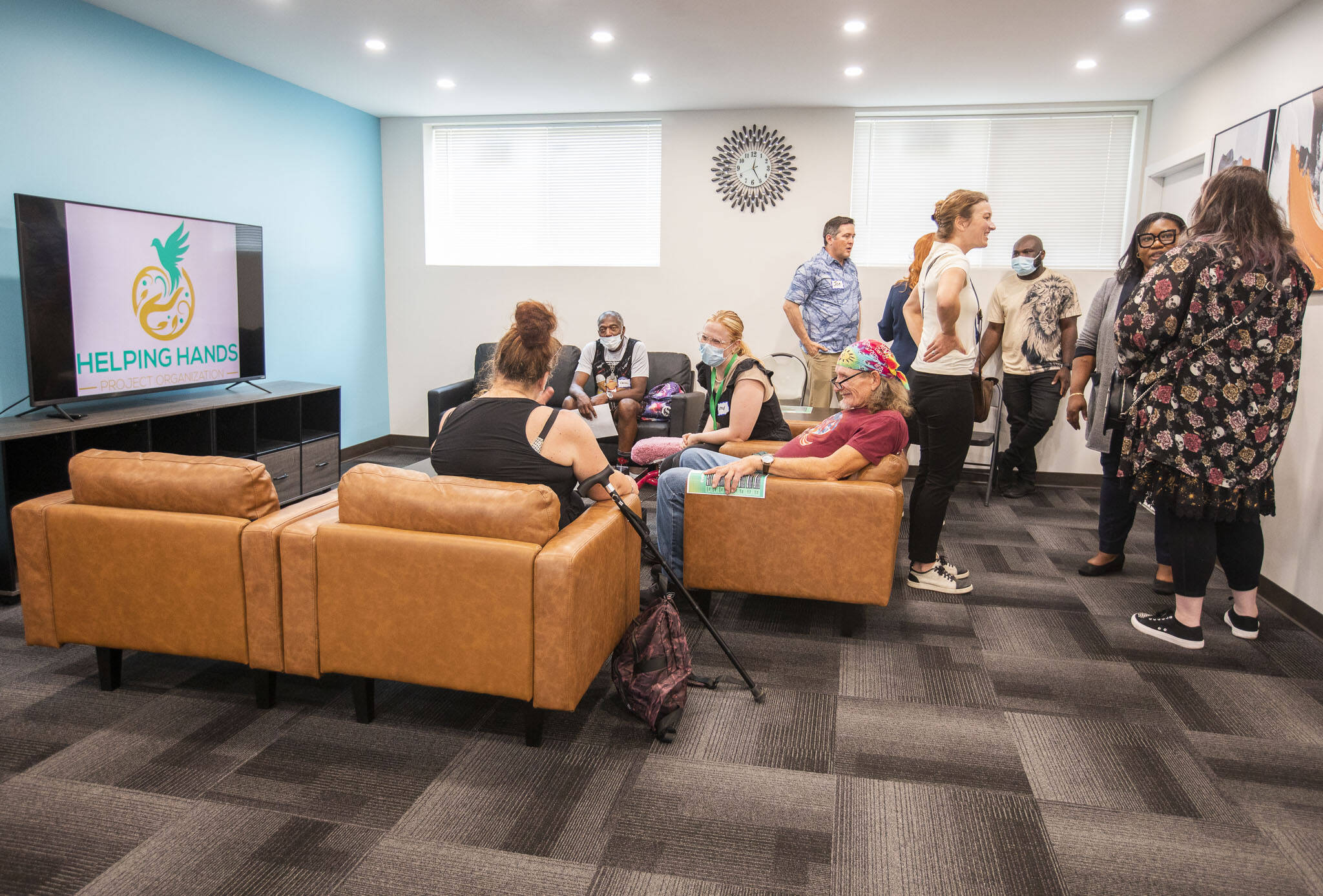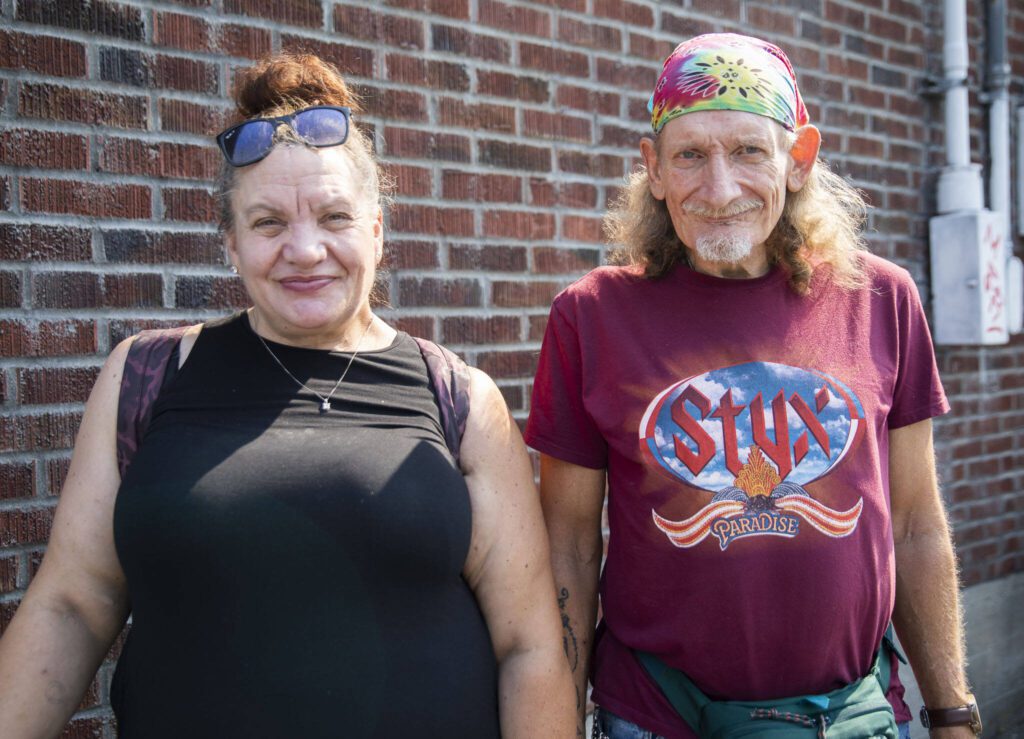EVERETT — An expanded behavior health clinic in downtown Everett opened Friday to serve more unhoused, low-income and minority residents.
After more than a year of renovation, the lower floor of Helping Hands Project Organization on 26th Street is ready for clients. It includes a new waiting area, crisis deescalation room and nursing office.
“This clinic has been a true labor of love for our team,” said Vivian Obah, CEO of Helping Hands. “We are deeply proud of each person involved in the opening of this crucial resource for underserved communities in the Snohomish County area.”
A state grant provided more than $700,000 for the expansion, Obah said.
Helping Hands hails its clinic as a space where historically underserved demographics can get treatment without discrimination. It offers psychotherapy, substance use disorder therapy, nursing and other health services. An internal medicine physician visits the clinic twice a week.
Last year, Helping Hands served 6,500 people. Right now, the clinic is open from 9 a.m. to 4 p.m. on weekdays and works with a total of about 100 to 120 clients, said Charles Obah, a Helping Hands supervisor. With the expansion, the goal is to help more people and eventually expand hours.
Specific programs include adult outpatient, intensive outpatient, crisis triage and counseling for those at risk of hospitalization or relocating from state psychiatric hospitals. In addition to behavioral health support, the agency offers its clients food bank, housing and abuse victim protection services.
Over the past year, Fred Prain and Dawn Eastman used the clinic to find mental health and housing stability. They now have a place to live after years of homelessness.
“Most organizations you go, the people don’t care, it’s just a job to them,” Prain said. “Helping Hands restored my faith in humanity.”
Helping Hands is also an important resource for racial and ethnic minorities, said Wally Webster, who founded The Access Project, a mental health support group for high school students in Snohomish County. At the clinic, he said, workers who are culturally competent can help break down racial stigma in mental health care.
The clinic takes most insurance plans, including Medicare and Medicaid, known as Apple Health in Washington. The clinic can’t serve clients without insurance right now, Charles Obah said, but can help them sign up for a plan.
Helping Hands is now working to secure money for a new low-income housing program, he said, with the hope of buying and sprucing up the house next to the clinic — and its seven bedrooms — that the agency now rents and uses for storage.
“They really care, and I’m so thankful for them,” Eastman said through tears. “I wouldn’t have made it otherwise.”
Sydney Jackson: 425-339-3430; sydney.jackson@heraldnet.com; X: @_sydneyajackson.
Talk to us
> Give us your news tips.
> Send us a letter to the editor.
> More Herald contact information.




























